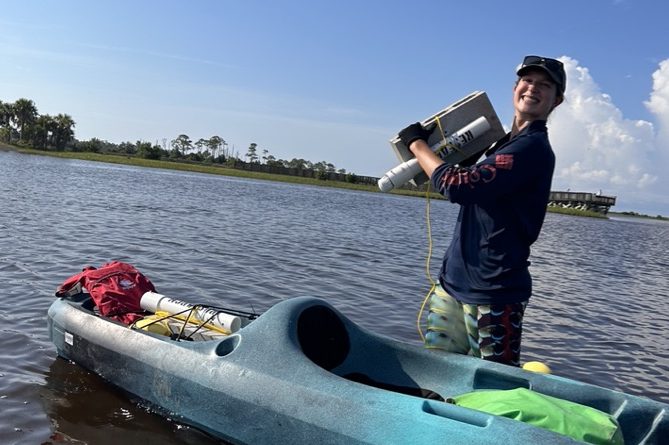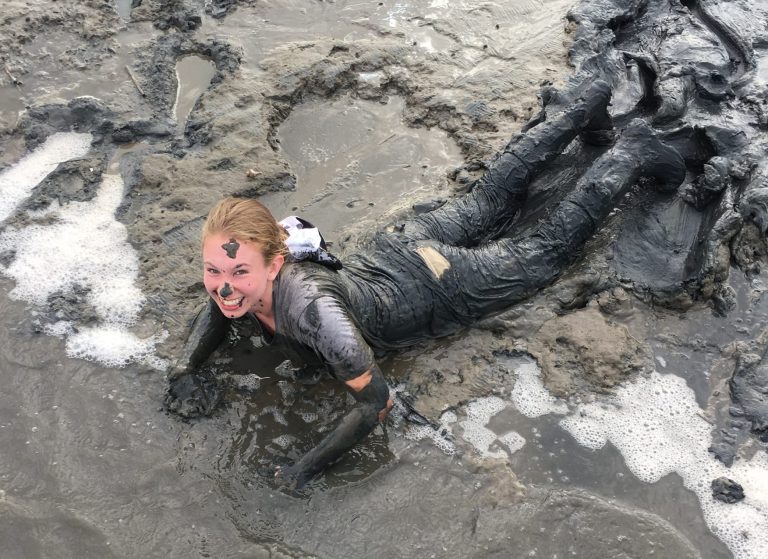University of Florida graduate students Hallie Fischman and Emory Wellman are collaborating with teachers to translate their research into lesson plans for middle and high school students that inspire solutions for a changing world as part of a Florida Sea Grant pilot project in collaboration with the Virginia Scientists and Educators Alliance (VA SEA).
“By using these projects to inform lesson plans, the projects and their findings can go beyond the ivory tower,” said Anna Braswell, Ph.D., co-principal investigator of Florida Sea Grant and assistant professor in the University of Florida School of Forest, Fisheries and Geomatics Sciences (SFFGS). “The importance of Ph.D. students connecting to younger students is to show students the excitement and wonder of coastal ecosystems and environments.”
Emory Wellman, a Ph.D. student mentored by Braswell, crafted a lesson plan on oyster monitoring for high school students in Alachua, a county near her research sites in Cedar Key, where she studies how wave energy can potentially drive oyster habitat loss.

Hallie Fischman, a Ph.D. student in the Environmental Engineering Sciences Department, developed lesson plans for sixth graders in St. Johns County on the relationships between organisms in marsh food webs and how invasive hogs are damaging salt marshes by eating mussels and trampling grass.
“Exposure to science is important because a lot of people have kind of an old-fashioned view of who a scientist is,” said Fischman. “Having pictures of us in the classroom and sharing the work we do is important to show that science is not just a white man in a lab coat doing chemistry. It’s important because a lot of kids are scared of science and don’t like science. Also, most of the lesson plans that are in VA SEA database focus on environmental issues. There are lessons on bycatch and fishing, for example, that are relevant to students who live on the coast.”

The lesson plan resonated with students, who built and analyzed a food web of their local habitat.
“With these types of real-world lesson plans, students are more engaged,” said Lauren Knox, a seventh-grade science teacher at Gamble Rogers Middle School who implemented Fischman’s lesson plan. “These connections show students that there is a ‘point’ to learning these concepts and that they are used in future careers.”
Since 2015, the VA SEA, led by Lisa Ayers Lawrence, marine education program leader at the Virginia Institute of Marine Science, has been developing lesson plans based on the latest research to inspire young students to follow science in their education and careers.
—
By Megan Sam
